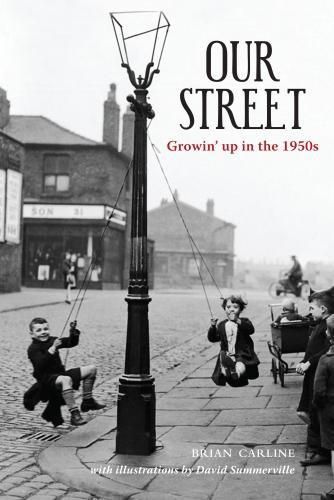Readings Newsletter
Become a Readings Member to make your shopping experience even easier.
Sign in or sign up for free!
You’re not far away from qualifying for FREE standard shipping within Australia
You’ve qualified for FREE standard shipping within Australia
The cart is loading…






Copenhagen Street was no different from any street in any industrial town or city in the 1950s. Its landscape was identical to streets in Bolton, Birmingham or Bermondsey during this decade. Not only were the streets similar, their inhabitants all had the same tales to tell too. These people were working class, living from week to week, most just managing to pay the rent. Unfortunately, some could not. This book describes one such street, home to a community of ordinary hardworking and poor families. Yes, there was hardship, as they struggled to get by on too little in postwar Britain. But they didn’t give up, instead showing a remarkable resilience, an ability to bounce back in adversity, and often great humour:
“Debt, Elsie?‘ a woman proclaimed to her neighbour, as she pointed to her headscarf. "We’re in debt up to 'ere, love. I just wish we were taller!’ If your street in the fifties was cobbled, and lined with tiny terraced houses. If its scarred pavements were chalked for hopscotch, and its lampposts used as cricket stumps. If your family hid from the rent man’s purposeful knock, and you asked for a penn'orth of scratchings from the chippy, then this book will help you recall those hard but happy days when you were a kid.
$9.00 standard shipping within Australia
FREE standard shipping within Australia for orders over $100.00
Express & International shipping calculated at checkout
Copenhagen Street was no different from any street in any industrial town or city in the 1950s. Its landscape was identical to streets in Bolton, Birmingham or Bermondsey during this decade. Not only were the streets similar, their inhabitants all had the same tales to tell too. These people were working class, living from week to week, most just managing to pay the rent. Unfortunately, some could not. This book describes one such street, home to a community of ordinary hardworking and poor families. Yes, there was hardship, as they struggled to get by on too little in postwar Britain. But they didn’t give up, instead showing a remarkable resilience, an ability to bounce back in adversity, and often great humour:
“Debt, Elsie?‘ a woman proclaimed to her neighbour, as she pointed to her headscarf. "We’re in debt up to 'ere, love. I just wish we were taller!’ If your street in the fifties was cobbled, and lined with tiny terraced houses. If its scarred pavements were chalked for hopscotch, and its lampposts used as cricket stumps. If your family hid from the rent man’s purposeful knock, and you asked for a penn'orth of scratchings from the chippy, then this book will help you recall those hard but happy days when you were a kid.